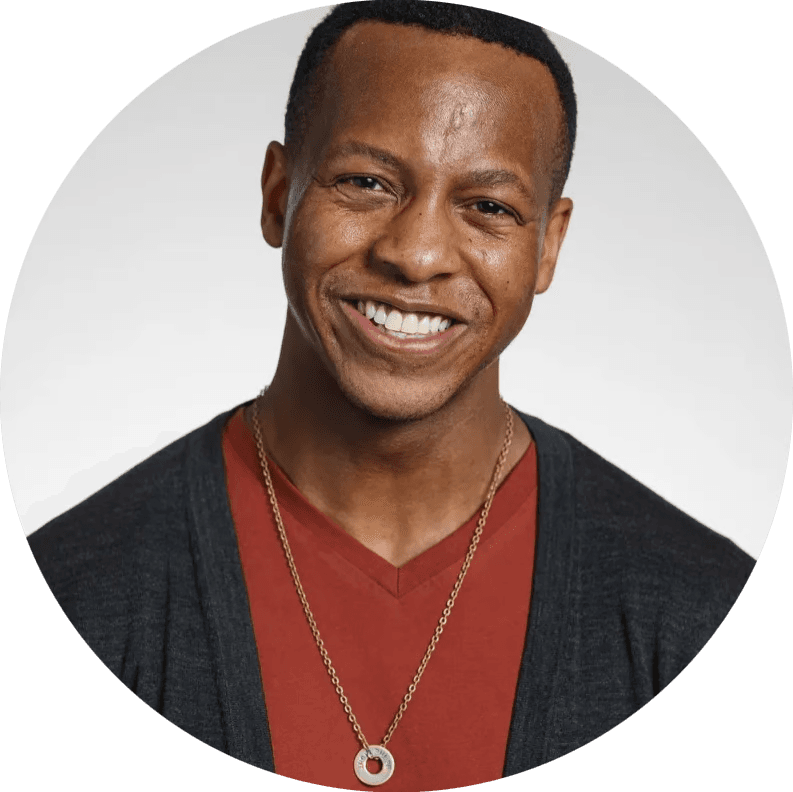Hey! 👋🏾 I'm Ron.
I'm a Product Manager at Meta Quest where I work on mixed reality experiences that blend the physical and digital worlds.
But this site isn't about my day job—it's about what happens when you apply AI tools to real work, personal growth, and creative projects.

My Story
I've spent my career building products at the intersection of technology and human experience. Before Meta, I worked at Riot Games on League of Legends esports events, Microsoft on Xbox Kinect and Internet Explorer, and founded two indie game studios, always drawn to pushing the boundaries of what's possible.
Like a lot of 90s kids, I grew up dreaming of making video games. That dream led me to learn coding, pick up piano to play game soundtracks, and eventually land in product management. But recently, I realized something: the thing that excites me now isn't just making games—it's still building, but also teaching, sharing, and helping others see what's possible with technology.
Which brings me to why this site exists.
What I Write About
I'm documenting my experiments at the intersection of three things:
AI-Assisted Productivity
I use tools like Claude Code to build websites, applications, and workflows. I call it "vibe coding life"—a PM's approach to technical and non-technical work where you don't need to be an expert to ship real things.
Personal Knowledge Management
I'm obsessed with note-taking systems, particularly Obsidian (my second brain with 2,000+ notes), as well as Notion and Apple Notes. I've even used Claude Code as an AI life coach to synthesize years of scattered thoughts into actionable insights.
Spatial Computing & VR
As someone who works on Meta Quest, I'm exploring what happens when you use VR not for games, but for productivity. Think multitasking, focus work, and reimagining how we interact with computers.
What I'm Building
Block Party (In Progress)
A browser-based puzzle game built entirely using AI-assisted development. I'm documenting the entire process as a case study in vibe coding.
This Website
You're looking at it! I migrated from Notion + Super.so to Next.js + Markdown, vibe coding my way through the entire stack.
RonOS
My personal knowledge base in Obsidian, connected to Claude Code for AI-powered reflection and life coaching.
Career Highlights
Meta (Facebook) | Product Manager, Horizon OS Input & Interaction | 2019 - Present
Leading strategy and development of the system input platform and interaction experience powering Meta Quest. Work includes input capabilities and core interaction experiences. I also led the PM team building the Quest system shell.
Block Party | Founder & CEO | 2018 - 2019
Founded and bootstrapped an independent game development studio. Launched Blitz of Blocks across web, iOS, and Android, engaging 10k users in the first month.
Riot Games | Senior Development Manager / Product Lead, Esports Events | 2014 - 2018
Led vision, strategy, and roadmap for League of Legends esports events. Delivered consistent growth in viewership, fan sentiment, and operational efficiency across global events.
Omega Entertainment | Founder & CEO | 2012 - 2014
Independently developed and published two games (Vector Arena, Block Party) across Windows and Windows Phone platforms.
Microsoft | Senior Program Manager, Kinect @ Xbox | 2009 - 2014
Led product development for biometric identity, fitness tracking, and skeletal tracking systems across Kinect for Xbox 360 and Xbox One. Partnered with game developers and engineering teams to ship platform APIs enabling console-differentiating experiences.
Microsoft | Software Development Engineer in Test, Internet Explorer 8 | 2007 - 2009
Owned quality assurance for tabbed browsing and privacy management features. Earned Trustworthy Computing Award in Privacy for InPrivate Filtering advances.
Education: Virginia Tech, BS in Computer Science (2003 - 2007)
Want the full story? Connect with me on LinkedIn.
Beyond the Keyboard
When I'm not coding or taking notes, you'll find me:
- Playing piano (covers and game soundtracks, mostly)
- Exploring VR worlds and productivity experiments
- Building Notion databases that probably over-complicate simple problems
- Thinking about how to make technology more human
I believe the best work happens at the intersection of technical capability and human creativity—and that AI tools are making that intersection accessible to everyone, not just engineers.
Let's Stay Connected
I send a weekly newsletter called The Degenerate where I share my latest experiments, the tools I'm using, and lessons from building in public.
No fluff, no hype—just honest documentation of what's working (and what's not).
😈 Subscribe to The Degenerate
I'm building my AI productivity system in public and documenting everything. Follow along for weekly experiments with Claude Code, Obsidian, and whatever I'm building next.